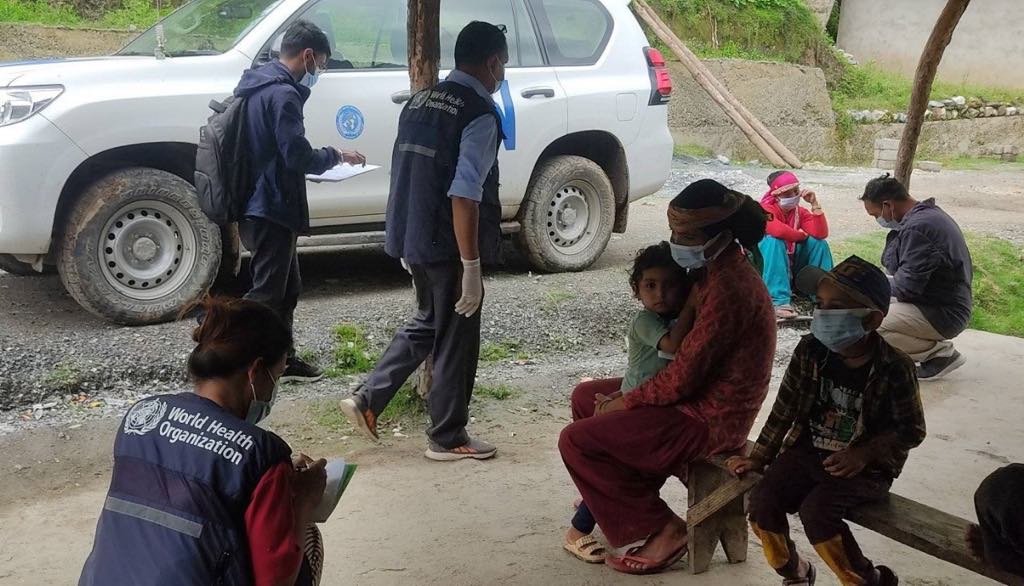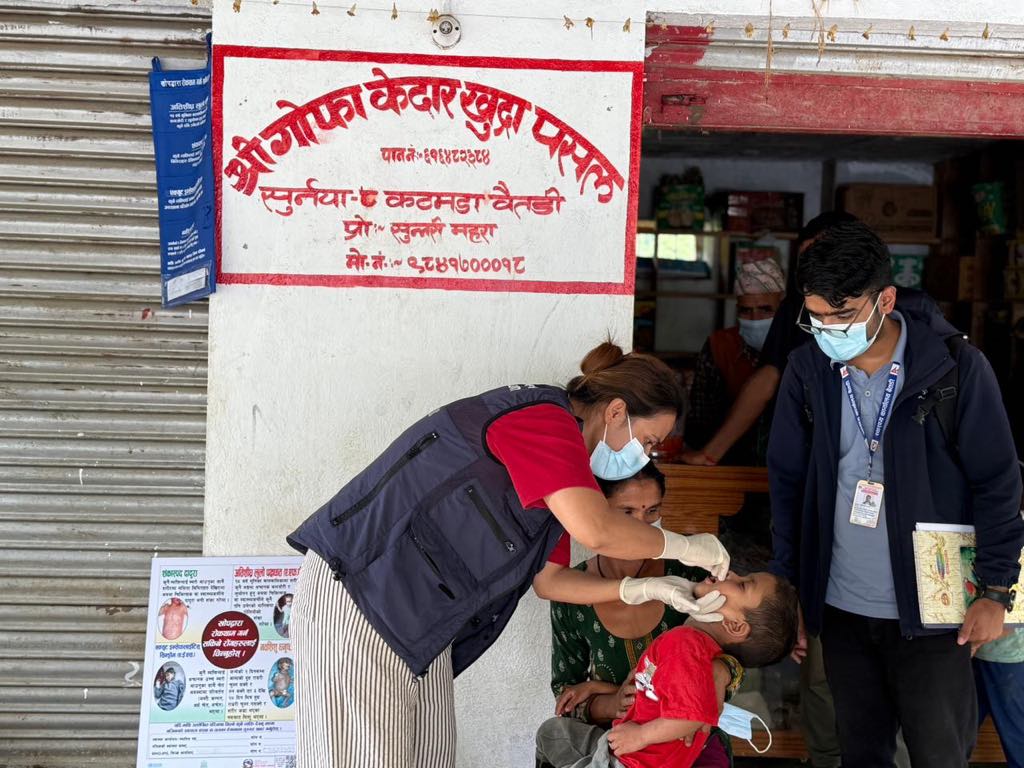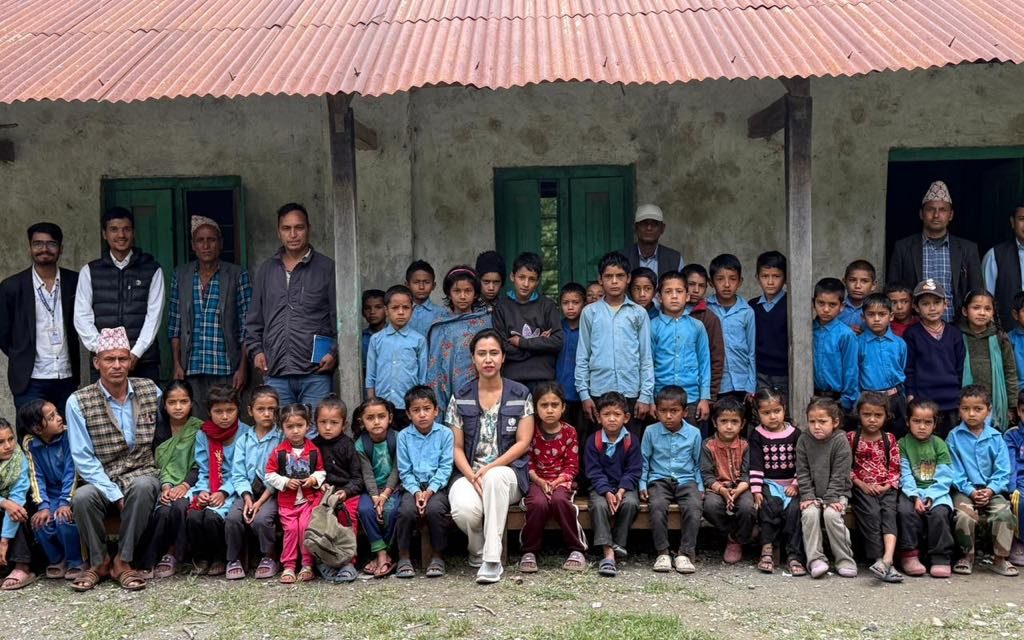Baitadi —After an outbreak of chicken pox (locally known as Theula) and fever in Ward No. 8 of Surnaya Rural Municipality, Baitadi district, the Immunization Preventable Diseases (IPD) team under the World Health Organization (WHO) conducted an on-site investigation and provided necessary health support.
Following the detection of the outbreak on Asar 5 , the WHO–IPD team reached the affected area to study the nature of the illness and collected throat swabs and blood samples from infected individuals. As the infection primarily affected children, Kedar Secondary School in Kathmada, Surnaya, was temporarily closed as a precautionary measure.

According to Mahara, Head of the Health Section, measures were taken to prevent further spread of the infection, including placing infected individuals in isolation and promoting personal and environmental hygiene. The rural municipality also urged all residents to remain cautious and adopt preventive measures.
With coordination between the Baitadi District Health Office, WHO–IPD team and the rural municipality, a series of public health interventions were launched. On Asar 6 (June 20), discussions were held among the Vice Chairperson, Chief Administrative Officer, and heads of the health and education departments to develop a coordinated response strategy.
Within 72 hours, the WHO–IPD team and the District Health Office accomplished the following key actions:
– Outbreak Investigation: The WHO–IPD team reached the field for outbreak surveillance and assessment after noticing a rise in cases.
– Sample Collection: Throat swabs and blood samples were collected from suspected patients and sent to a laboratory for testing.
– Orientation for Local Leaders and Health Workers: Awareness sessions were held with the Vice Chairperson, Chief Administrative Officer, and local health and education officials about measles and other vaccine-preventable diseases.
– Community Awareness: The team conducted awareness sessions in schools, engaging students, teachers, and local Female Community Health Volunteers (FCHVs) to inform them about prevention and control measures.
– Vitamin A Supplementation: Infected children were provided with Vitamin A supplements to support recovery and prevent complications.

The WHO–IPD team played a vital role in delivering an effective and rapid response, making a significant contribution to local public health efforts.
The Baitadi District Health Office has committed to ongoing surveillance and the provision of necessary healthcare services in the affected areas.





